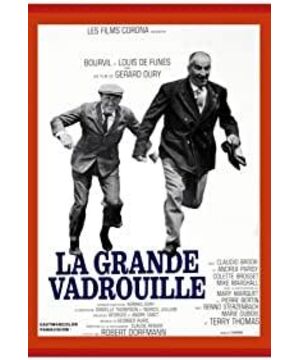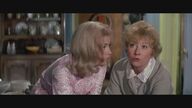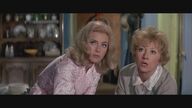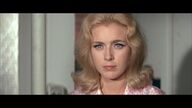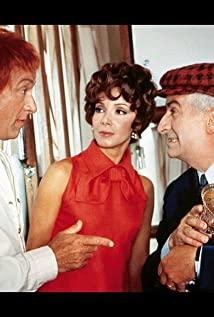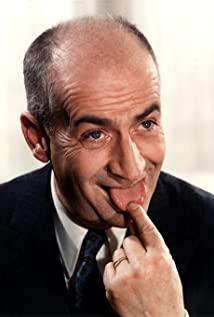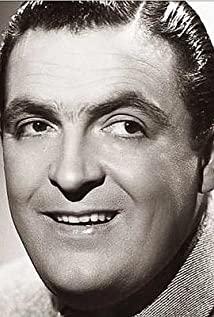In May 1940, the German army made the Maginot Line, which cost a lot of money, a joke through the "Blitzkrieg", and France also provided a steady stream of inspiration for future generations to humiliate the law in the "Brilliant Record" of surrendering in less than a month. However, even if "the hardest thing in the world is to occupy Paris before France surrenders", it does not prevent French filmmakers from making films on this subject with a playful and humorous tone.
Title: La Grande Vadrouille, French original meaning: a grand stroll. Indeed, looking at the synopsis says that the British pilots escaped the occupied territory with the help of the French. It is conceivable that the predicament of life and death, surrounded by cruel and cold-blooded Nazis, three Britons and three French people are struggling all the way, nervous, thrilling and humorous. And go. Will this be a war movie? This is the occupied area under the rule of the Nazi "Gestapo"? The whole movie seems to be really as the title says, it is a "grand hangout", full of ridicule and fooling of the enemy Nazis: the general who is dyed white every time he appears, the major who is intent on arresting but always fails by chance. , Cross-eyed soldiers who made many oolongs... As if they were declaring: Look, the enemy who can defeat us is only like this.
Although it doesn't matter whether this will hurt him or not, in 1966, the status of Western European countries declined as a whole, and the world was already dominated by the United States and the Soviet Union. In the two world wars, although Britain and France were winning each time, each win consumed the savings of old powerhouses until it was unsustainable in the end. Germany lost everything after losing the war. When the comprehensive national strength has been difficult to reach the bright spot on the world stage, the cultural position is particularly important.
So the greatest comedy film in French film and television came into being. "Escape from the Tiger's Mouth" was the most expensive film in France at that time, both in terms of economic cost and time cost. From the very beginning of the film's life, the script was ill-fated: Mr. Gerald, the writer-director, sold the script early on and had to "redeem" it for three times as much. At that time, the subject of the fall of World War II was still a restricted area in France. In order to open the film smoothly, he used the name of an experimental film to secretly shoot. The film cost a total of 14 million francs. Just the part where the German general was painted white was re-shot 12 times, costing 30,000 francs, and the most classic pumpkin car battle scene directly burned nearly one million francs. . And the wonderful and romantic glider part at the end is that the crew waited five months for the right wind. While the process was painstaking and costly, it turned out that those costs ultimately survived the sinking and were more than worth the money. "Escape from the Tiger's Mouth" became popular in France and the world as soon as it was born. 17 million people entered the cinema during that time. It also dominated the French box office for 9 consecutive weeks. It was not until "Titanic" 32 years later that it was able to win 2000 tickets. It broke its box office legend by 10,000 people. However, the classic status of "Escape from a Tiger's Mouth" in film history, especially in the history of comedy films, is still difficult to shake. After all, its influence has "transcended borders and transcended time".
Although it is a war comedy, it is different from the nonsensical "Hands Up". In addition to the humorous and funny stories, "Escape from the Tiger's Mouth" is still a story of intrigue and thrilling escape: we will be splashed with paint for the general. And Ren Jun will also be worried about the painter and the troupe girl co-starring in the husband and wife scene in front of the German army; we will laugh at the "clothing assembly line" under the Paris sewers, and we will also be heartbroken when Peter is seen by the general on the train. Shen; We will applaud the idea of the six people leaving in a glider, and we will also be worried about where everyone will go... There are many other things, the audience will not only laugh for the funny scenes, but also for the dangerous escape plot. nervous and worried. It is estimated that the film art people of the last century in our country also had such an idea, so that they avoided the rigid translation of "a grand stroll", and instead adopted the "credible and elegant" translation of "Tiger's Mouth Escape" without losing its attractiveness. . The chill of war and the humor of comedy are handled so freely, I think this is an important reason why "Escape from a Tiger's Mouth" can endure for a long time.
And I think a big credit for being able to skillfully interweave the two in a non-violent manner is that the characters are quite stable. Both pros and cons have brains to fight to promote the normal and reasonable development of the plot. At the same time, the buffoons on both sides are responsible for laughing, adding humor and humor to the story in a serious environment. And the most subtle stroke of magic is the screenwriter's combination of the brains of the decent characters and the harlequins, and the separation of the two villains. The villains range from the ruthless and good-natured general, to the confused and bad-tempered major, to the impressive cross-eyed soldier with only a few scenes. British pilots have a certain quality, but after all, they are not regular spies, they have a plan, but they can't take into account the details, and their fatal flaw: they can't speak French. Painter and conductor, a person in the market, rich in worldly experience and strong adaptability, but can't see the situation clearly and is short-sighted. These advantages allow them to reasonably survive the desperation, but these disadvantages also keep the decent party laughing along the way, especially the two French.
It can be said that this is a French film after all, and "Escape from a Tiger's Mouth" mainly portrays two French people. Whether it is a British pilot who is smart and brave, or a German officer who is still full of humanity despite being a Nazi, it is obviously not as good as the two French in terms of portrayal. It just so happened that the painters and conductors also roughly represented the upper and lower social classes, so it was possible to take a glimpse of the leopard, and from these two people could see the spiritual outlook and attitude of the French people at that time. It can be seen that despite the background of the war, the French people, despite being slaves to their country, still did not lose their enthusiasm and always had the spirit of resistance to the enemy, otherwise they would not have decisively rescued and tried to hide the equivalent of the enemy country. pilot. But the vision of the little man is limited after all, he always likes to care about in small places, the differences between classes and so on are full of the real mentality and concept of the little man in the context of the war. Although the two had constant differences and entangled each other along the way, the kindness in their hearts and the dangerous external environment promoted their friendship, and eventually became a friendship that was not lost to the British soldiers. The images of these two have also become the classic screen images of French film and television and even world film and television.
The images of these two people, or the group portraits of the whole film, truly reflect the true portrayal of the French people in the war-torn era: a few people have strong national feelings-for example, it seems that the underground party resistance organization is conspiring. Bombs were planted, but most of the French - although much to do with the Germans' treatment of civilians (except Jews) - chose to live peacefully under enemy occupation, and even served the invaders: the two protagonists were for the Germans. The generals played and painted for the Germans. This may be one of the reasons why France surrendered so quickly, even though it was still a world-class power.
Externally, their strength is not as good as others, and they do not have enough land area and terrain to support themselves to open up their strategic depth; internally, the bones of the French are not as strong as those of the British and the Soviets. Because of the so-called "interests", they can surrender decisively. The aggressors did not hope to establish their prestige through massacres, as Japan did, but adopted a policy of tranquillity, which further disintegrated the French people's sense of resistance. However, the so-called "interests" have not been obtained or even maintained at all, and the French are not less treated as slaves of subjugation: French agriculture is used to solve the famine problem in Germany, while the French people themselves can only live on the ration system. The days of living with food (there is a small detail in the film, the protagonist and his party count the robbed clothes and distribute the property, first of all, the food stamps distributed), instead, the developed military production line in France was fully launched to support the fascist war of aggression, for the sake of fascism. The anti-fascist coalition's counterattack added great resistance. The contribution of "Free France" to the anti-fascist alliance was far less than that of Vichy France to fascism.
So are the French people really willing and at ease to be the slaves of this subjugated country? Obviously it is impossible. It can also be seen from this video that after the British pilots parachuted, the zoo director, painter, and commander (although initially forced) were decisive and determined to help the pilots escape; after the German headquarters was on fire, the firefighters obviously Deliberately pointing the water gun at the German soldiers who could not move because of Lizheng; even the convent nanny, who should be detached from the world and should not be involved in politics, resolutely gave the protagonist and his party a helping hand when they heard the identity of the "Royal Air Force"... The French people They are resentful and unwilling in their hearts. They are giving strength and help to resist the aggressors to the best of their ability. But their strength is so weak and insignificant, and their resentment and unwillingness appear so bitter.
But that's French after all, the French nation that reminds you of "Romantic" when you mention its name, so even though she was on the run, she still left behind the romantic open ending of the classic glider disappearing into the sky with the cast and crew. . People's Daily Online commented on the director of "Escape from a Tiger's Mouth": "He uses a big laugh to explain the big event." All the bitterness, grief, anger and unwillingness have been transformed into a unique French romance and humor, which has aroused the laughter of generations of audiences around the world.
"A grand stroll" has entered the hearts of millions of viewers, entered the palace of comedy movies, and has become a milestone in war comedy. "Escape from Tiger's Mouth" is a war film, but no one died in the whole film, the comedy effect has been further strengthened, but the cruelty of the war has not been weakened. Because even if this is a comedy, "a grand hangout", along the way we can glimpse the fearful and materially deprived life of the people at the bottom, respecting the soldiers of the enemy country in their own country, and being disturbed by violence or even endangering their lives at any time - with Peeking at the leopard, seeing the true chapter in the details - the audience after laughing can also feel the cruelty of the war and give birth to heartfelt disgust. time".
View more about La Grande Vadrouille reviews


